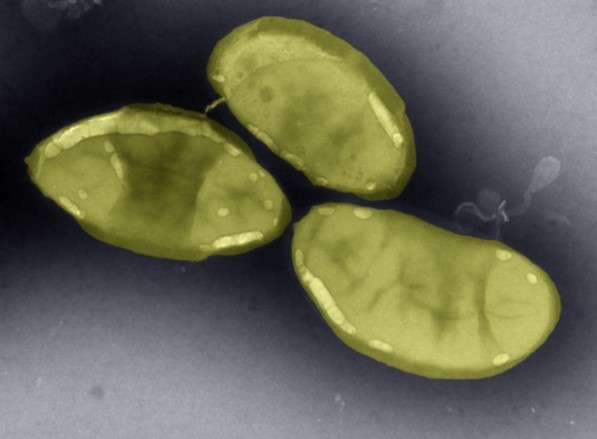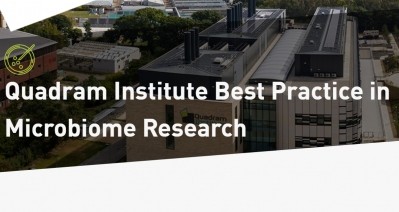New gut species could improve protein availability, study finds

Writing in Environmental Microbiology, the team identifies Desulfovibrio diazotrophicus as a family of bacteria that could cope with a very restricted, protein-limited diet found in certain countries.
“Until now Desulfovibrio bacteria associated with humans have largely been linked to gut inflammation and diseases such as ulcerative colitis and colorectal cancer.” said Dr Lizbeth Sayavedra, research team member based at the Quadram Institute
“In this study, we challenge the polarised view that they are detrimental and hypothesise that some sulphate-reducing bacteria (SRB) could have a role in the availability of nitrogen in the gut, especially when low-protein diets are consumed.”
Biological nitrogen fixation is the process by which nitrogen (N2) is reduced to biologically available ammonia (NH3).
In the human microbiome, the potential to fix nitrogen has been so far linked to Klebsiella and Clostridia.
Humans can regulate the nitrogen available to the microbiome via the diet and intestinal secretions so bacteria that can fix nitrogen could potentially have a competitive advantage in the gut environment.
Study details
Along with colleagues from China’s Jiangnan University and the Max Planck Institute for Developmental Biology, the team began isolating and characterising SRB from the intestinal tract of healthy Chinese and British people.
Metagenomic sequencing of stool samples from these individuals, and comparisons with 1690 Desulfovibrionaceae genomes from humans of located worldwide, revealed the presence of the SRB species QI0027T in 22 further individuals.
Further analysis revealed QI0027T encoded nitrogen fixation genes and actively fixed nitrogen. More tests revealed QI0027T overexpressed 42 genes in nitrogen limiting conditions as compared to cultures supplemented with ammonia.
“The gut microbiome is extremely complex and the competition between microbes is intense,” says The Quadram Institute’s Professor Arjan Narbad.
“In conditions where there is limited nitrogen, those bacteria that can fix nitrogen would have a distinct advantage in growth and survival.
“We don’t yet know whether the fixed nitrogen is only used by the bacteria that produce it, or whether it is shared with other members of the gut microbiome – this is what we are actively investigating now.”
Given that nitrogen fixation is a high-energy demanding process and the gut is nutrient-rich, the team began exploring the conditions that may favour the Desulfovibrio species in fixing nitrogen.
“It is commonly assumed that N2 fixation can occur only when bioavailable nitrogen is limiting (less than 1 micrometre (µM),” the team writes.
“However, nitrogen fixation can occur in environments with relatively high input of fixed nitrogen such as oceanic waters with high nitrate or ammonia concentrations as well as the human gut.”
‘Actively fixing nitrogen’
The paper also points out that humans belonging to a population from Papua New Guinea that had low protein intake (e.g. fixed nitrogen), as well as Japanese individuals that had a higher protein intake, were shown to have a gut microbiome that was actively fixing nitrogen.
The team also acknowledged that the microbial contribution to the nitrogen intake from humans could be population specific depending on the dietary habits, especially when low protein diets are consumed.
“Further work will be required to disentangle which factors trigger nitrogen fixation by Desulfovibrio in the human gut,” the team concludes.
“[More work is needed] to understand the contribution of bioavailable nitrogen through nitrogen fixation, compared to other nitrogen assimilation pathways such as the import of free amino acids, ammonium, urea, nitrate and DNA.”
Source: Environmental Microbiology
Published online: DOI: 10.1111/1462-2920.15538
“Desulfovibrio diazotrophica sp. nov., a sulphate reducing bacterium from the human gut capable of nitrogen fixation.”
Authors: Lizbeth Sayavedra et al















